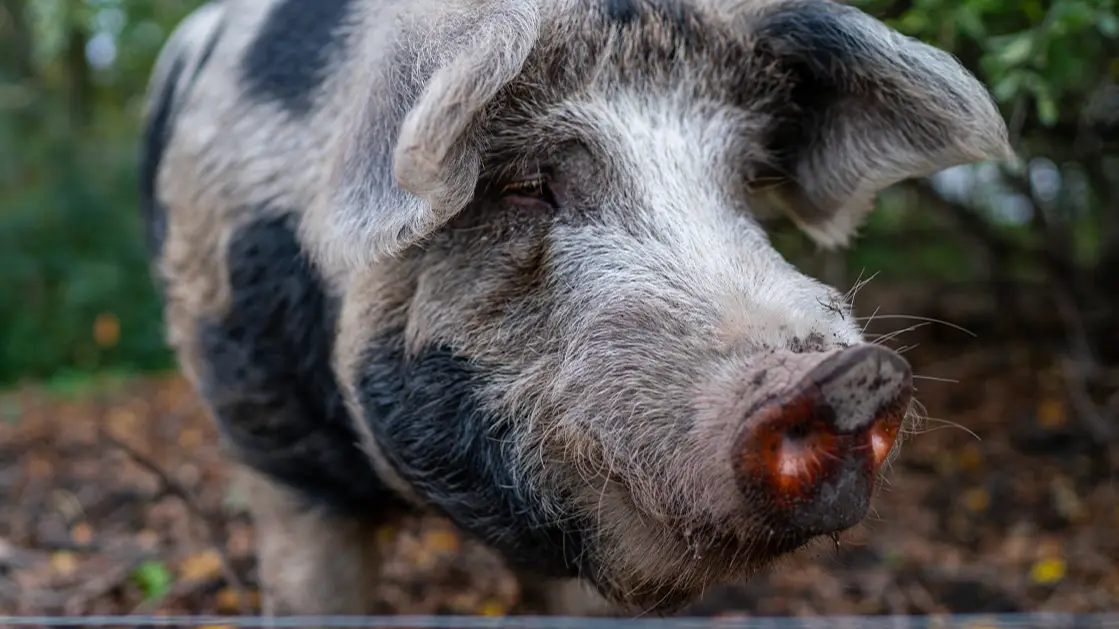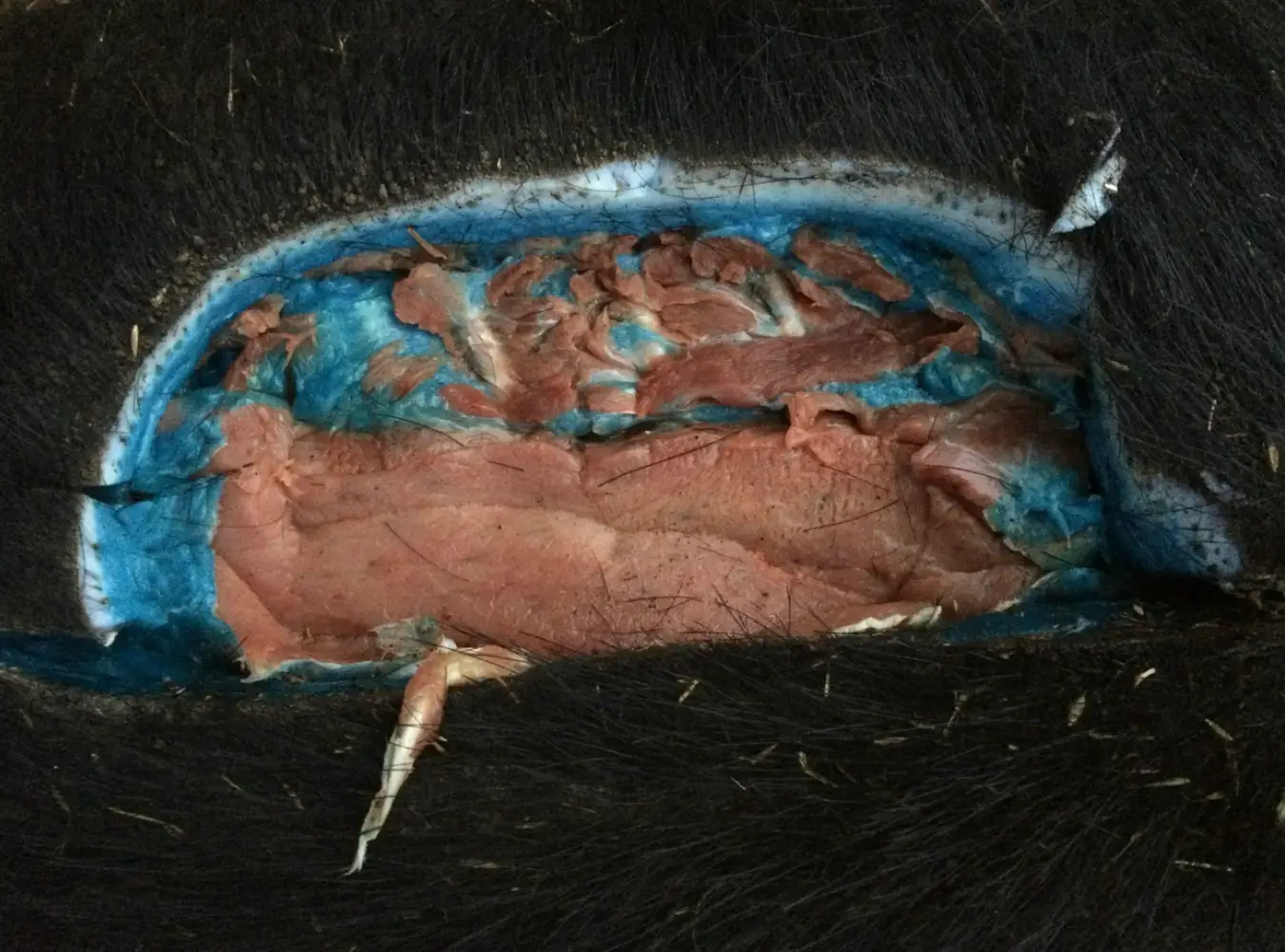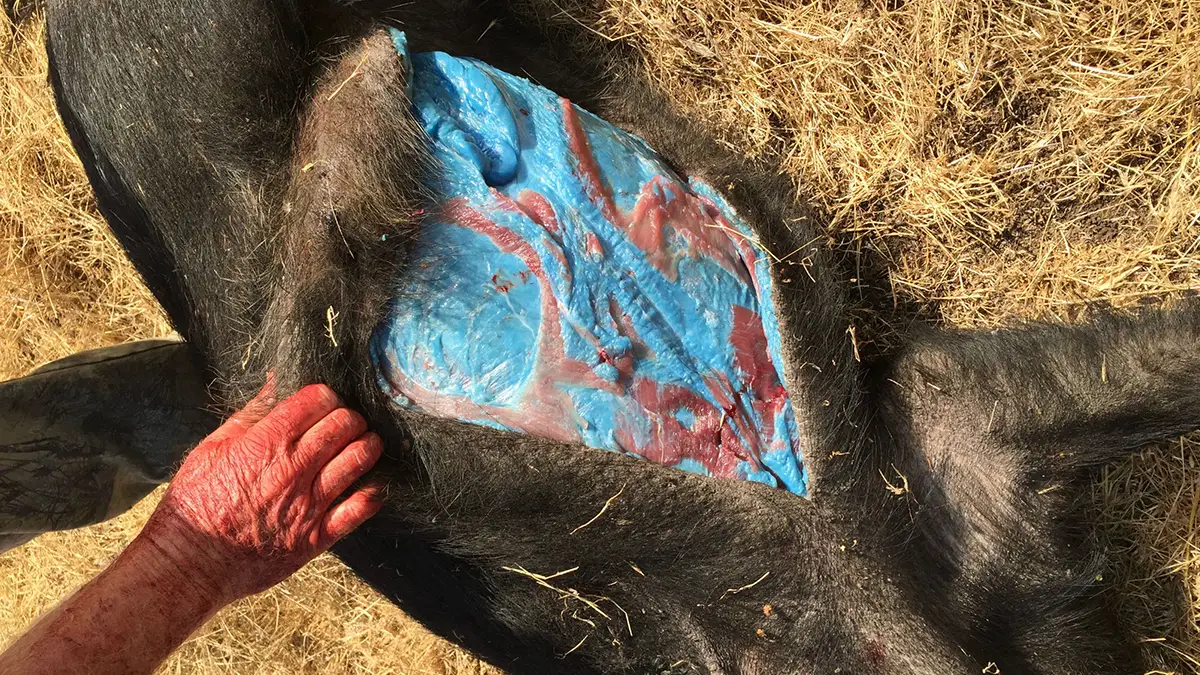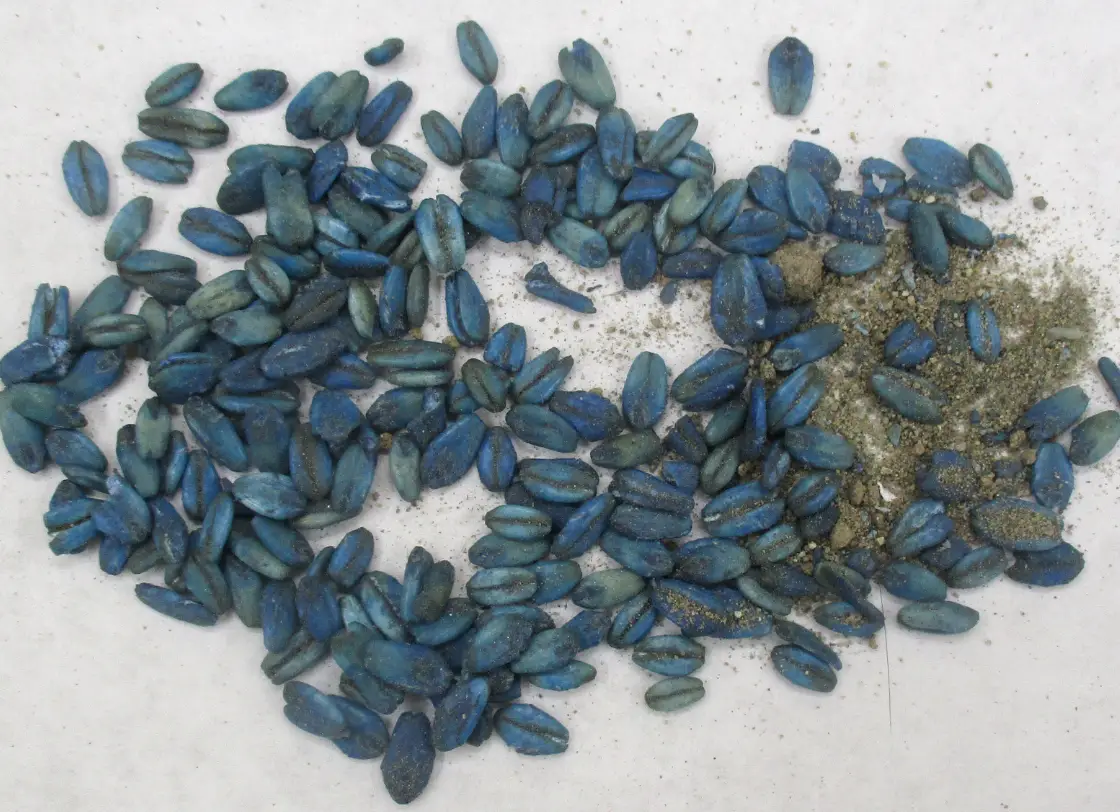
While some people like their steak 'blue', the phrase has become literal in the wake of wild pigs being found with blue flesh.
Dan Burton, who owns a wildlife control company, is no stranger to trapping wild pigs for his clients, but was left scratching his head earlier this year after discovering a pig had blue flesh.
"I’m not talking about a little blue, I’m talking about neon blue, blueberry blue," Burton recently told the Los Angeles Times.
He proceeded to inform officials at Monterey County, California, of the usual phenomena, as well as the California Department of Fish and Wildlife.
Advert
Reportedly folks in Morgan Hill have previously found these blue-fleshed pigs as well. Someone posted photos of a dead wild pig to image sharing service Imgur back in 2015.
"So, my in-laws live on a ranch in Morgan Hill, CA and they shot a wild pig on it. They thought it a normal pig until they cut it open," they wrote on the platform.
Like what Burton has described, the pig was seen with neon blue flesh.

What is causing pigs to turn blue?
It is believed that the pigs have been exposed to pesticide bait containing the anticoagulant rodenticide diphacinone, the California Department of Fish and Wildlife’s (CDFW) Wildlife Health Lab (WHL) and the California Animal Health and Food Safety Laboratory in Davis found.
Rodenticide is a common chemical used by farmers and companies to control the population of rats, mice and squirrels.
Blue tissue in wild pigs can be a sign of can be a sign of rodenticide bait ingestion. The chemical is dyed blue to make the poison stand out.

What happens if you eat one of the blue pigs?
It is important that you do not eat one of the blue pigs as you can experience 'secondary exposure' to the poison because the substance can remain for a time in the organs and tissue of the poisoned animal, the Los Angeles Times reports.
Reportedly cooking the meat won't make a difference to the concentration of the poison either, so it's important it is not ingested even when cooked.

What have the experts warned?
In a news release published last month, CDFW Pesticide Investigations Coordinator Dr. Ryan Bourbour said: "Hunters should be aware that the meat of game animals, such as wild pig, deer, bear and geese, might be contaminated if that game animal has been exposed to rodenticides.
"Rodenticide exposure can be a concern for non-target wildlife in areas where applications occur in close proximity to wildlife habitat."
Anyone who finds an animal with blue tissue is being urged to report it to the CDFW’s Wildlife Health Lab at [email protected] or (916) 358-2790.
Topics: California, Environment, Animals, News